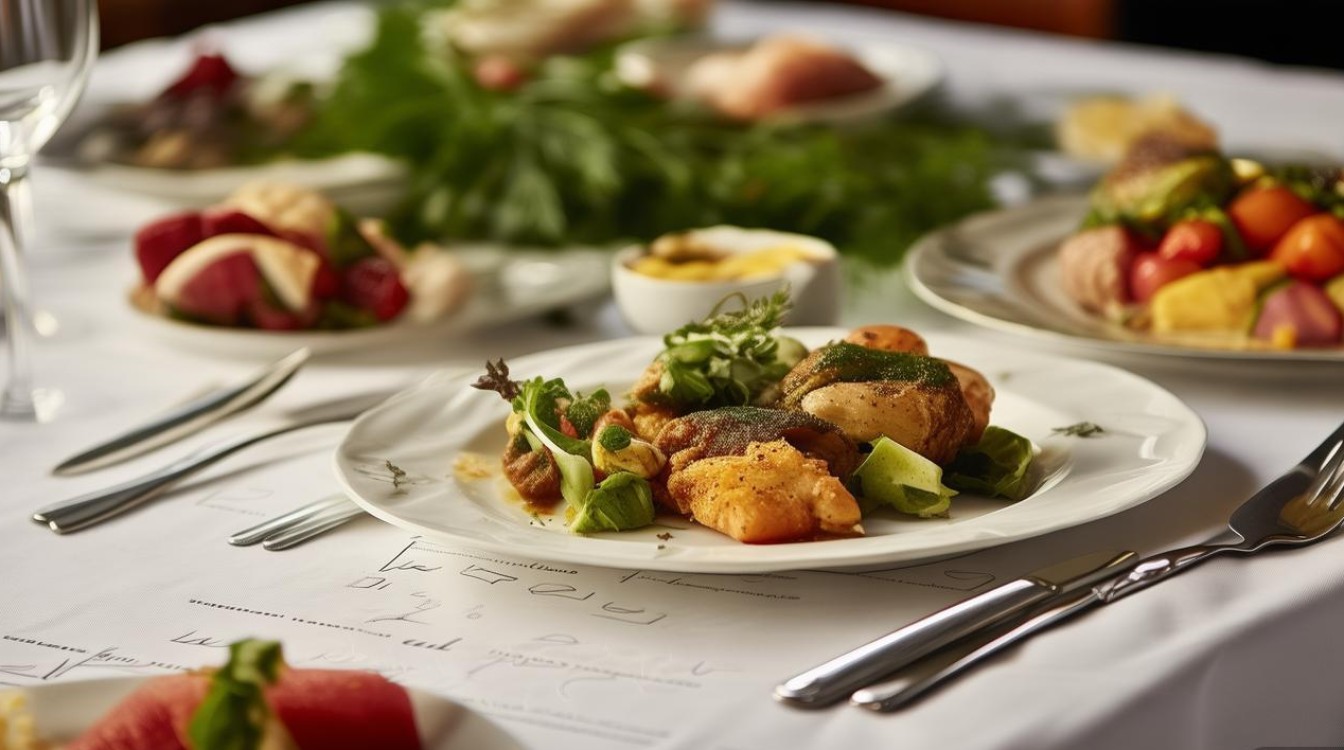A Special Meal
Food has always been more than just sustenance; it is a language of love, a bridge between cultures, and a vessel for memories. Among the countless meals we share in our lives, a special meal stands out—not for its extravagance, but for the emotions, stories, and connections it embodies. Whether it’s a homemade dish passed down through generations, a festive feast with loved ones, or a quiet meal that marks a milestone, these moments become etched in our hearts.

The Essence of a Special Meal
A special meal transcends the ordinary. It is crafted with intention, care, and often, a touch of nostalgia. Think of the aroma of bread baking in a grandmother’s kitchen, the sizzle of spices in a family curry, or the clinking of glasses during a holiday toast. These meals are not just about taste; they engage all the senses and evoke feelings of warmth, belonging, and joy.
In many cultures, special meals are tied to rituals and traditions. For example, in Italy, Christmas Eve is marked by the Feast of the Seven Fishes, a seafood-rich meal symbolizing abundance and faith. In China, the Lunar New Year dumplings represent wealth and prosperity, while in Mexico, Día de los Muertos offerings of tamales and pan de muerto honor deceased loved ones. These dishes carry generations of stories, turning a meal into a living heritage.
The Making of a Memorable Meal
What transforms a regular dinner into a special meal? It’s a combination of factors, from the ingredients to the people sharing it. Below is a simple breakdown of the key elements:
| Element | Role in a Special Meal |
|---|---|
| Ingredients | Fresh, high-quality, or culturally significant ingredients elevate the dish. |
| Preparation | Time and effort spent cooking, often with family, add sentimental value. |
| Setting | A beautifully set table, candles, or ambient music enhances the experience. |
| Company | Sharing the meal with loved ones—near or far—deepens the emotional connection. |
| Storytelling | Sharing memories, jokes, or anecdotes during the meal makes it unforgettable. |
For instance, a simple bowl of ramen can become special when shared with friends after a late-night study session, or when made with a recipe from a friend who moved abroad. The meal itself is just the beginning; the magic lies in the moments it creates.
Personal Stories of Special Meals
Everyone has their own version of a special meal. For some, it’s the first time they cooked for a partner, nervously trying to replicate a recipe from their childhood. For others, it’s a meal shared during a difficult time—a warm soup from a neighbor after a loss, or a birthday cake baked by a child with lopsided frosting. These meals remind us that love and care are often the most important ingredients.
Consider the story of Maria, who immigrated to the U.S. from Vietnam. Her most special meal is the bánh mì she makes every year on her mother’s birthday. The baguette is crispy, the pâté is rich, and the pickled vegetables add a tangy kick. But what makes it unforgettable is the way her family gathers around the table, sharing stories of their homeland and laughing until late into the night. For Maria, this meal is a taste of home and a tribute to her mother’s resilience.
The Global Language of Special Meals
Food is a universal connector, and special meals often reflect this. In Japan, the obento box is a labor of love, with parents arranging food into intricate shapes for their children. In Morocco, a traditional tagine is slow-cooked for hours, filling the house with the scent of saffron and ginger, and bringing family together around a single dish. Even in fast-paced cities like New York, food trucks serving halal carts or dirty water dogs become special spots where strangers bond over shared meals.
These meals teach us that diversity is not just about differences but about the shared human experience of coming together to eat, celebrate, and connect.
Preserving the Legacy of Special Meals
As life gets busier, it’s easy to overlook the importance of slowing down for a special meal. Yet these moments are vital to our well-being. They strengthen family bonds, pass down traditions, and create a sense of continuity. To preserve this legacy, consider:
- Cooking together: Involve children or friends in meal prep to make it a collaborative experience.
- Sharing recipes: Document family recipes with stories behind them, creating a culinary heirloom.
- Mindful eating: Savor each bite, appreciating the effort and love that went into the meal.
FAQs
What makes a meal "special" beyond the food itself?
A meal becomes special due to the emotions, people, and memories associated with it. Even a simple dish can feel extraordinary if it’s shared with loved ones during a meaningful occasion or if it carries personal significance, like a recipe from a grandparent. The atmosphere, conversation, and intention behind the meal often matter more than the complexity of the dish.
How can I create a special meal on a budget?
Special meals don’t require expensive ingredients. Focus on simplicity, creativity, and personal touches. For example:
- Use seasonal, affordable produce to make a hearty stew or salad.
- Set a cozy table with candles or homemade decorations.
- Cook a dish that holds personal meaning, like a childhood favorite.
The key is to infuse the meal with care and thoughtfulness, turning ordinary ingredients into something extraordinary.
In the end, a special meal is not just about what’s on the plate—it’s about the love, laughter, and stories that fill the space around it. So whether you’re cooking for one or a crowd, take the time to create moments that linger long after the last bite. After all, the best meals are the ones that feed both the body and the soul.











